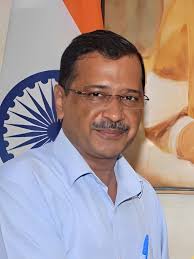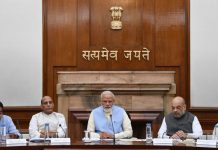The Supreme Court granted Delhi CM Kejriwal a bail in connection with the CBI’s FIR relating to alleged corruption in the Delhi liquor policy scam. The bench was of the view that ‘completion of the trial is unlikely to occur in the immediate future.’ A report by Mudit Mathur

The Delhi Chief Minister finally came out from Tihar jail after the Supreme Court granted him bail in connection with the CBI’s FIR relating to alleged corruption in the Delhi liquor policy scam. A bench of Justices Surya Kant and Ujjal Bhuyan was of the view that ‘completion of the trial is unlikely to occur in the immediate future.’
While both judges unanimously decided to grant bail to Kejriwal, Justice Ujjal Bhuyan differed from Justice Kant regarding the CBI arrest and said it was only to “frustrate bail” granted in the Enforcement Directorate (ED) case. The bench directed that he be released on furnishing a bail bond of Rs 10 lakh and two sureties of a similar amount. It also imposed a condition that he should not make public comments on the merits of the CBI case.
Both the judges delivered separate judgments, while granting bail, the Bench of Justices Surya Kant and Ujjal Bhuyan placed certain conditions — Kejriwal will have to abide by the same conditions placed on him by the SC when he received bail in connection with the Enforcement Directorate case on July 12, 2024.
Justice Kant held that the arrest of Kejriwal was legal and did not suffer from any procedural irregularity. Justice Kant held that there is no merit in the contention that the CBI failed to comply with the mandate of Section 41 of the Code of Criminal Procedure while arresting him.
Differing with Justice Kant, Justice Bhuyan expressed a contrary view regarding the need and necessity to arrest Kejriwal. Justice Bhuyan held that the arrest by the CBI was only to frustrate the bail granted to Kejriwal in the money laundering case. Justice Bhuyan noted that the CBI did not arrest Kejriwal for 22 months and arrested Kejriwal on the cusp of his release in the ED case.
“It appears that only after the learned special judge granted regular bail to the appellant in the ED case, which was stayed by the HC on oral mentioning, that CBI became active and sought custody of the appellant. Thus, CBI did not feel the need and necessity to arrest the appellant for over 22 months,” Justice Bhuyan observed.
When Kejriwal got bail in the money laundering case despite the stringent conditions under the Prevention of Money Laundering Act (PMLA), his further detention in the predicate offence (CBI case under the Prevention of Corruption Act) became untenable. It is a travesty of justice to keep the appellant in custody on these grounds, especially as he has been granted bail in a more stringent PMLA case, Justice Bhuyan held.
“Like Caesar’s wife, an investigating agency must be above board. Not so long ago, this Court had castigated the CBI, comparing it to a caged parrot. It is imperative that the CBI dispels the notion of being a caged parrot, rather the perception should be that of an uncaged parrot,” Justice Bhuyan remarked.
Kejriwal had filed two petitions, one challenging the denial of bail and another against the upholding of his arrest by the CBI in the case. A bench of Justices Surya Kant and Ujjal Bhuyan had heard the matter and reserved their verdict on September 5, after lengthy arguments from both the sides.
Kejriwal was arrested by the Enforcement Directorate on March 21 in a money laundering case linked to the now-scrapped excise policy. On June 26, the CBI formally arrested him in a corruption case linked to the alleged scam. The Supreme Court had granted him interim bail in the money laundering case on July 12 and he was in judicial custody in the corruption case lodged by CBI. Of the 40 accused in the cases linked, only two —Kejriwal and businessman Amandeep Singh Dhall — remained behind bars.













